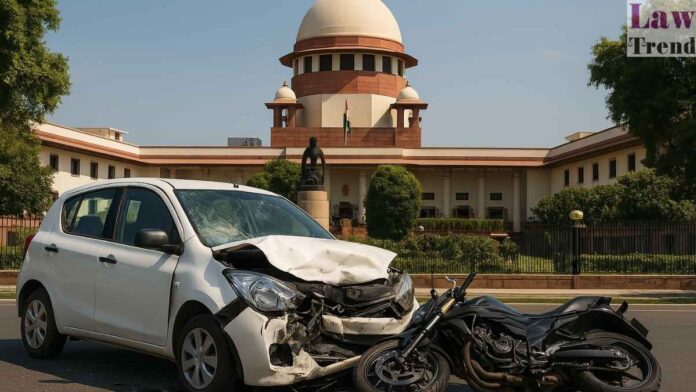The Supreme Court of India has affirmed an order directing an insurance company to first pay compensation to the dependents of a road accident victim and then recover the amount from the owner of the offending vehicle, which was plying on a route for which it had no permit. In the judgment delivered on October
To Read More Please Subscribe to VIP Membership for Unlimited Access to All the Articles, Download Available Copies of Judgments/Order, Acess to Central/State Bare Acts, Advertisement Free Content, Access to More than 4000 Legal Drafts( Readymade Editable Formats of Suits, Petitions, Writs, Legal Notices, Divorce Petitions, 138 Notices, Bail Applications etc.) in Hindi and English.




